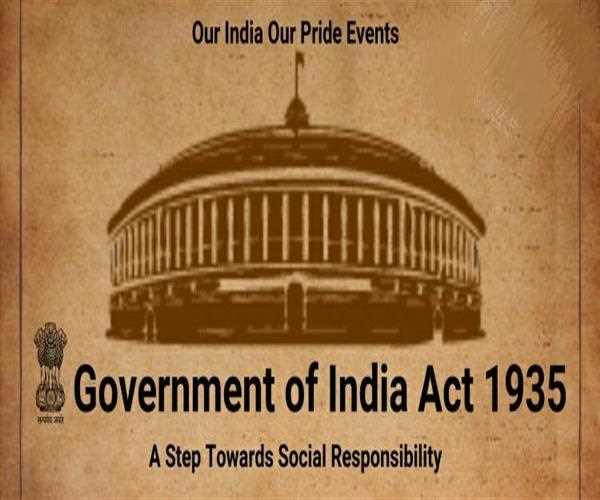The Government of India Act, 1935 vested the residuary power under the control of the ‘Governor General’.
Overview
The act of 1935 of India also known as the Government of India Act 1935
was adopted from the Parliament of the United Kingdom. And was originally received the Royal assent in August 1935. Until 1999, the act was known as the biggest act that was enacted by the Parliament of Britain. And in 1999 the act Greater London Authority act 1999 passed as the biggest act of the UK.
The act was originally divided into two parts where the one part was constituted 321 sections and 10 schedules.
Whereas the other part of the act was constituted 159 sections and 6 schedules.

Know More:
The Chief Source Of Political Power in India
Changes in the country after the Enactment of the Act 1935
Establishment of RBI
The enactment of the Government of India Act 1935 has resulted in the establishment of the
Reserve Bank of India, which is the government body for controlling all the banks and related works within India.
Establishment of Federal Courts
The act was having the provision of the establishment of the new federal courts in the country.
Bicameralism in 6 provinces
In India there were a total of 11 provinces in the country and out of 11, the 6 has been selected for bicameralism.
Features of the Government of India 1935 Act
No Bill of Rights
In common with commonwealth constitutional legislation of such Act. The act didn’t mention such rights in it that leads to the criticism and after a long time, the
Nehru Report mentioned it in the report.
Excess Safeguards
The act became the functioning as the constitution of India and Pakistan. It can also be seen in the act that it was not so detailed and also contained the excess of the safeguards which restrict the people.
No Preamble
The Act didn’t have the source and also it didn’t have the preamble that can be seen as the source. And this became very uncommon in the British parliament to make any act or constitution without preamble.